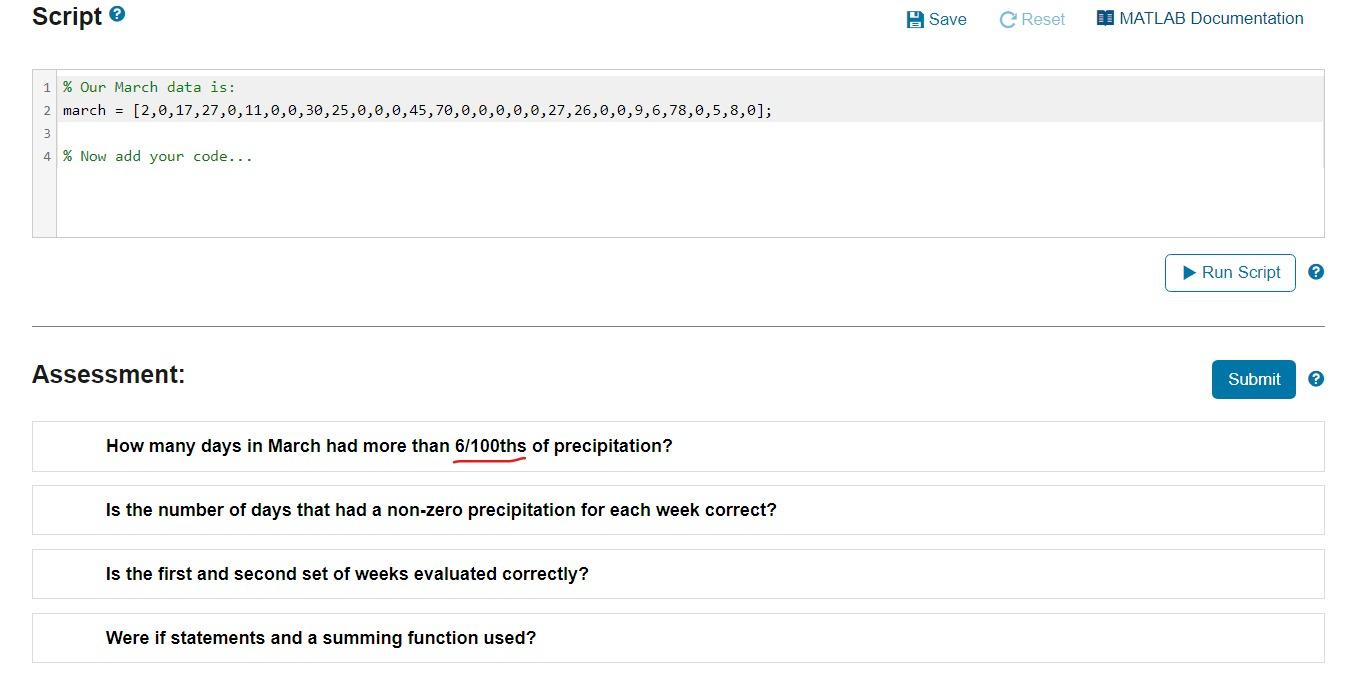Question
In your lab assignment, you looked at histocial preciptiation across the entire year. Let's take a small segment of that data to look at here.
In your lab assignment, you looked at histocial preciptiation across the entire year. Let's take a small segment of that data to look at here. March was a productive month for precipitation. Here's the row from that data file:
march = [2,0,17,27,0,11,0,0,30,25,0,0,0,45,70,0,0,0,0,0,27,26,0,0,9,6,78,0,5,8,0]; See the Learner Template for this code.
How many days had more than 6 hundredths of an inch (remember, that's our unit here) of precipitation? Save this to days_more_than_six.
Assuming that Sunday was on the 2nd day for this month, find the total number of days in each full week (Sunday to Saturday) where there was a non-zero precipitation fall. Save these values into a column vector, days_precip_each_week.
Finally, write the set of conditionals to test if the first full two weeks had more, less, or the same number of days of precipitation as the last two full weeks of the month. If more, set first_half_vs_second_half to -1. If the same, then set first_half_vs_second_half to 0. And if less, then set first_half_vs_second_half to 1.
Hint: you're going to need to find a function to add up sets of numbers in a vector. Do not just use a bunch of element indexing statement (don't do march(1,1) + march(1,2) etc, or similar).

Step by Step Solution
There are 3 Steps involved in it
Step: 1

Get Instant Access to Expert-Tailored Solutions
See step-by-step solutions with expert insights and AI powered tools for academic success
Step: 2

Step: 3

Ace Your Homework with AI
Get the answers you need in no time with our AI-driven, step-by-step assistance
Get Started


